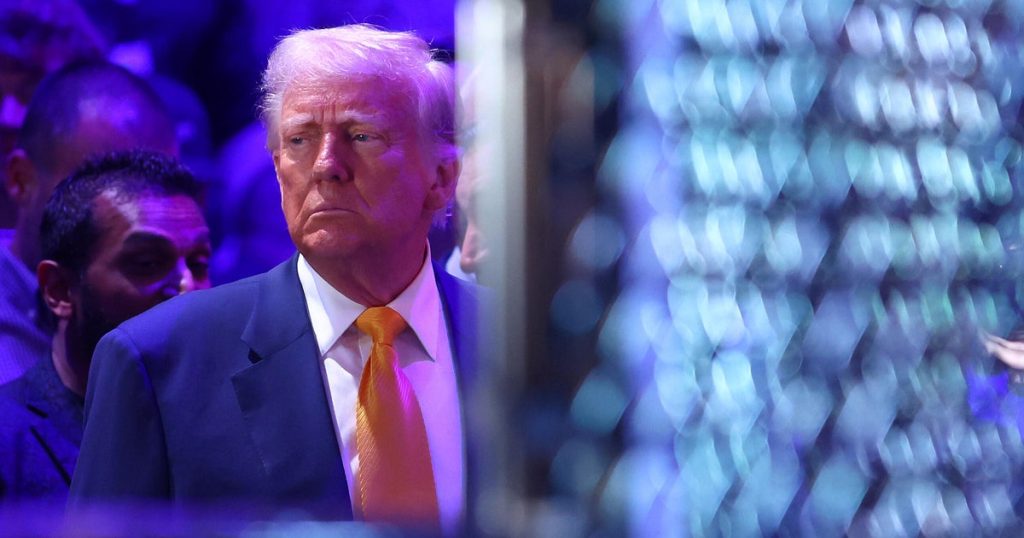In a significant legal decision, a federal judge has blocked the Trump administration from enforcing specific parts of an executive order that targets the prominent law firm Susman Godfrey. The U.S. District Judge Loren AliKhan issued a temporary restraining order after determining that the administration’s directive likely retaliates against the firm and its clients for engaging in constitutionally protected speech. This ruling raises questions about the balance of power and the administration’s approach to legal representation.
| Article Subheadings |
|---|
| 1) Court’s Ruling on Executive Order |
| 2) Background of the Legal Challenge |
| 3) Implications for Legal Representation |
| 4) Broader Context of Executive Orders |
| 5) Future of Law Firms Under Scrutiny |
Court’s Ruling on Executive Order
In a landmark decision, Judge Loren AliKhan ruled that the Trump administration’s executive order, which was implemented to target Susman Godfrey, was likely unconstitutional. The judge emphasized that the order poses risks to the integrity of legal representation in the United States. She stated, “The government sought to use its immense power to dictate the positions that law firms may or may not take,” highlighting the potential overreach of executive power. This temporary restraining order prohibits the enforcement of specific provisions related to federal contracting and limits the firm’s employees’ access to federal locations and government officials.
Background of the Legal Challenge
The catalyst for this legal battle stems from Susman Godfrey’s involvement in high-profile lawsuits, particularly against organizations aligned with President Trump. The firm represented Dominion Voting Systems in a defamation lawsuit against Fox News over false claims about the 2020 presidential election. Following the conclusion of that case, which resulted in a $787 million settlement, Susman Godfrey continued its legal efforts against conservative media outlets like Newsmax. Given that these actions might have provoked the executive order, the case raises vital concerns about the retaliatory use of governmental authority against legal representation.
Implications for Legal Representation
The implications of Judge AliKhan’s ruling extend beyond Susman Godfrey, as it sets a precedent for other law firms. The judge’s observations on the order being driven by personal vendetta against the firm suggest systemic issues regarding freedom of speech and association in the legal landscape. If the government can penalize firms for their representation, it may threaten the foundational principles of the legal profession, especially concerning access to justice for clients. The firm itself stated that it views this legal challenge as essential not only for its interests but for the broader rights of all Americans to engage in legal advocacy.
Broader Context of Executive Orders
This ruling is part of a larger narrative involving the use of executive orders to exert influence over legal entities. Since taking office, President Trump has signed several executive orders targeting law firms that represent clients opposing his administration. Such initiatives have sparked controversy regarding their legality and the motivations behind them. The fact that four law firms, including Susman Godfrey, have successfully challenged these orders underscores the growing concern regarding governmental overreach and its implications for civil liberties.
Future of Law Firms Under Scrutiny
As Susman Godfrey joins the ranks of law firms contesting the enforcement of potential punitive executive orders, the legal community is left to ponder the future landscape for firms representing politically sensitive cases. Other firms, such as Perkins Coie, Jenner & Block, and Wilmer Cutler Pickering Hale and Dorr are similarly affected, and their ongoing litigation may shape the environment in which legal services are rendered. The lawyers and firms must tread carefully as they navigate the politicized waters, balancing their ethical commitment to clients with the risk of administrative actions aiming to intimidate or coerce legal advocacy.
| No. | Key Points |
|---|---|
| 1 | A federal judge has prohibited parts of an executive order targeting Susman Godfrey. |
| 2 | The ruling cites potential violations of the First and Fifth Amendments. |
| 3 | The case raises significant questions about the limits of executive power in legal contexts. |
| 4 | Susman Godfrey is involved in high-profile lawsuits against entities linked to the Trump administration. |
| 5 | The decision may influence the actions of other law firms facing similar scrutiny. |
Summary
The recent ruling in favor of Susman Godfrey highlights critical legal issues surrounding the balance of power between the government and legal entities. It raises alarms about potential retaliatory practices against law firms that advocate for clients opposing the government’s interests. This case not only reinforces the importance of protecting constitutional rights but also serves as a warning about the implications for legal representation in a politically charged atmosphere.
Frequently Asked Questions
Question: What was the primary reason for the judge’s ruling?
The judge ruled against the enforcement of the executive order because it likely retaliated against Susman Godfrey for exercising constitutionally protected speech.
Question: How does this ruling impact the law firm Susman Godfrey?
The ruling provides temporary relief by blocking the enforcement of specific provisions that could have harmed the firm’s operations, allowing them to continue their legal work without undue interference.
Question: What broader issues does this case highlight?
This case underscores concerns about governmental overreach, the independence of legal representation, and the possible chilling effects on law firms advocating for politically sensitive clients.


